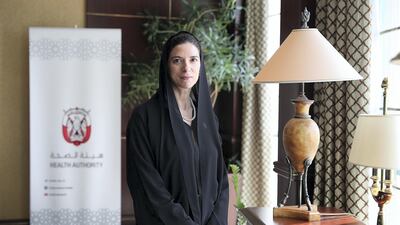A series of healthcare reforms are planned for Abu Dhabi as part of attempts to bring insurance costs down and help the authorities wrestle back control of spending.
A clampdown on patients self-referring themselves to costly specialists is among the measures and will be in place from September 1.
Adults will need to get a referral from a doctor in the first instance to ensure better diagnosis.
Until now, patients have been able to access a second, third or fourth opinion from a specialist, without restriction and directly billing their insurer.
Patients seeking a second or subsequent outpatient appointment for the same specialty within 21 days, without a doctor’s referral, will only be covered if the patient obtains pre-approval.
This new process excludes a patient’s first visit for a specific symptom, children under the age of 18 and those aged 60 years and above. Health screening visits, vaccination visits, and emergencies will also be excluded from the changes.
“We need to change the culture of doctors and patients, as this is not good for quality of care,” said Dr Maha Taysir Barakat, the authority's director general.
“[Ideally] you need to see a general doctor first, before seeing a specialist.
“Ultimately we want to improve the confidence of the patient, so they know whenever they walk into a clinic that clinic has passed the minimum quality criteria for safety," said Dr Barakat.
_______
Read more
Billions lost in healthcare fraud and waste
UAE health insurers take a scalpel to rogue claims
_______
“Healthcare providers that repeatedly fail the quality metrics will slip out of the system and will no longer be able to continue in healthcare.”
The move is part of broader efforts to increase trust between doctor and patient. Insurers and patients have complained of a culture of unnecessary tests and medication.
Stephen Maclaren, a senior executive at insurer Al Futtaim Willis, said a transparent health service was vital to improve patient confidence.
“A lot of people ask for a second opinion as they are cynical towards doctors and the treatment they are given,” he said.
“This is clear by the number of people that are asking for second, third and fourth opinions from doctors.
“If people are going from consultant to consultant without seeing a GP first, that is time consuming and expensive. They should be seeing a family practitioner first.”
Other changes include better performing hospitals sharing information and mentoring poor performing facilities.
The latest reforms to shape healthcare in the capital are part of a two-year consultation between hospitals and Health Authority – Abu Dhabi (HAAD).
“We can ask the good facilities to counsel the bad facilities, or we can introduce disciplinary measures,” said Dr Barakat.
“We no longer need to wait for errors to happen, and we can be proactive in spotting where those mistakes are likely to occur.
“If things are not working as they should such as high infection rates at a hospital, we can jump in to find out why and take necessary action. Improvement is then demanded otherwise there will be consequences.”
Abu Dhabi has seen a succession of reforms since 2007.
This new mechanism will also help increase efficiencies, while optimising quality of care.
From June 1, HAAD mandated all health insurance claims to be submitted within 24 hours, so regulators could monitor patient use of services, almost in real time.
Rather than check on hospitals and clinics quarterly, or after an annual review, HAAD is now able to assess quality and drug prescriptions within hours of patients leaving the care of clinicians.
This real-time record will give important information for medical staff and opens up many possibilities for treatment and patient care.
“It is part of our strategy to make this information public knowledge,” said Dr Barakat.
“Healthcare operators have been in discussion on these changes for the last two years, and have helped identify the quality metrics."
Previously, information on hospital performance, infection rates and medical data was collected every three months, now it is collected on a month-to-month basis.
Results from June, for example, were collected so HAAD was aware of healthcare outcomes in the sector from the first week of July.
That data goes to a dashboard, so HAAD can see what facilities may be failing and are in need of a snap inspection. In future, that information will be available on a public portal so patients can vote with their feet, possibly from as early as 2018.
Demands on healthcare have developed across the country, as the UAE has grow
The introduction of mandatory health insurance in 2006 provided all residents in Abu Dhabi access to high quality care, with Dubai following suit.
Whilst population continues to grow rapidly, the UAE’s birth rate and mortality rates have declined steadily. The World Health Organisation has reported a decrease in the under 5 mortality rate from 22 to 8.2 per 1’000 live births between 1990 and 2013 across the UAE.
Cardiovascular diseases accounted for 34.9 per cent of all deaths in 2015. Cancer caused 13.5 per cent of all deaths in the Abu Dhabi that year.
Significant growth in demand is expected, as a result of increased in lifestyle-related diseases, such as diabetes, cardiovascular diseases and cancer.


